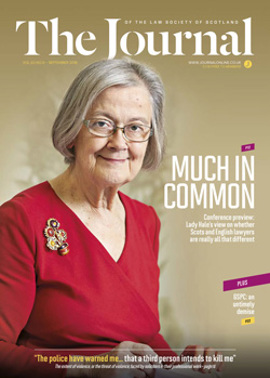Writing means writing

In Lord Sumption’s words, “Modern litigation rarely raises truly fundamental issues in the law of contract. This appeal is exceptional.” The appeal was Rock Advertising v MWB Business Exchange Centres [2018] UKSC 24. Alongside a question of consideration under English law, it raised the issue of whether a contract term prescribing that an agreement may not be amended save in writing (a “no oral modification” or NOM clause) is legally effective.
This case centred around the effectiveness of oral modifications which neither complied with nor made any express reference to a NOM clause in a licence agreement. This provided: “7.6. This Licence sets out all the terms as agreed between MWB and Licensee. No other representations or terms shall apply or form part of this Licence. All variations to this Licence must be agreed, set out in writing and signed on behalf of both parties before they take effect.”
Rock entered into a licence with MWB to occupy office space for a fixed term of 12 months, for a fee of £3,500 per month for the first three months, then £4,333.34 per month. Rock accumulated arrears of more than £12,000, and negotiated a payment plan with one of MWB’s credit controllers, to defer part of the payments due and spread the accumulated arrears over the remainder of the term. Rock’s director asserted an agreement to vary the licence to that effect. This was denied, the credit controller treating the revised plan as a proposal in a continued negotiation, which was ultimately rejected by senior management. MWB terminated the licence and sued for the arrears; Rock counterclaimed for wrongful exclusion from the premises.
Before the courts
At first instance Judge Moloney QC in Central London County Court decided for MWB, finding on this point that an oral agreement had been reached but that the variation was ineffective because it had not been recorded in writing in accordance with clause 7.6. The Court of Appeal overturned this decision, finding that an oral agreement to vary payments also dispensed with clause 7.6, and that MWB was bound by the variation.
In the Supreme Court, Lord Sumption asserted that “party autonomy operates up to the point where the contract is made, but thereafter only to the extent that the contract allows”. There was freedom of contract to agree the rules, but the parties must then play by those rules. The underpinning of this reasoning was to avoid informal variations which were open to abuse, even (or perhaps specifically) when it was the original parties who “agreed” the variation. He expanded on this by remarking: “The law of contract does not normally obstruct the legitimate intentions of businessmen, except for the overriding reasons of public policy. Yet there is no mischief in No Oral Modification clauses, nor do they frustrate or contravene any policy of the law.” The court also saw advantages in the formality of senior management requiring to be consulted.
Lord Briggs supported this, but inclined more towards the autonomy of the parties and was of the opinion that the parties could agree to remove the NOM clause informally, but the variation would fail if it did not refer at all to the NOM clause (as was the case here).
Commentary
Practice suggests parties usually forget both the precise terms of the contract and the need to “administer” it as part of mutual performance. “Putting it in a drawer to gather dust” is the cliché. Parties (and their advisers) need to play by what are, after all, their rules, and in an ideal world, check them before acting in haste (to avoid repenting at leisure).
In Scots law there may be an express or implied variation of contract. For instance, McBryde explains: “There may be consent to discharge the old contract, or an agreed variation of its terms, or the acting of both parties which show an agreement to vary. There may be consent to substitute different obligations, which gives rise to novation, or it may be agreed that one party may unilaterally change part of the contract.”
McBryde also comments that NOM clauses may be unwise, since people usually act in a way that pays little regard to their contract (as in this case). However, his guidance is non-committal, simply advising that if a NOM clause is disregarded, then, in Scots law, the arguments will be: “1) the non-variation clause should apply unless there is clear indication to the contrary; 2) the parties can novate on their original contract, their original consent is not immutable”.
On Lord Briggs’s reasoning, if there is no express waiver of the NOM clause (whether orally or in writing), there probably cannot be clear indication to the contrary.
This is a Supreme Court decision, and, despite its discussion of consideration, Scots lawyers need to warn clients of its effect. While it is difficult to dispute Lord Sumption’s reasoning, the downstream effects for PFI, construction and procurement contracts more broadly remain to be seen.
In this issue
- Confidence restored: internal investigations and legal privilege
- Court reforms: still an unknown quantity
- Ruled out of court?
- Uncovering the environment (1)
- Medical death: a case to answer
- Reading for pleasure
- Opinion: Kerry Trewern and Rhona McNair
- Book reviews
- Profile: Ryan McCuaig
- President's column
- Developing digital services
- People on the move
- Leading judgment
- Health check
- Open to attack
- Claims: beating the trigger
- Storage: time for digital
- GSPC: eulogy for a friend
- Relevant persons: a challenge
- New specialist land registration practice launches
- Good enough reason?
- Copyright: underpinning control
- Writing means writing
- Rent moves: two crucial hoops
- Debtor wins in policy decision
- Scottish Solicitors' Discipline Tribunal
- KIR: the time bomb explodes
- The guideline goal
- GC NextGen: a network for you?
- Your Law Society of Scotland Council members
- Public policy highlights
- Double boost for Society's AML team
- Ask Ash
- Practice rights and the impact of Brexit: working in the EU
- Acting as notary: what do I need to know?
- Engagement letters: a practical approach
- Uncovering the environment
- Paralegal pointers






